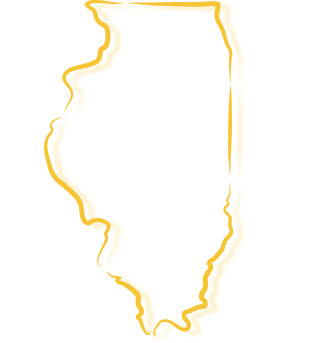Types of Compensation in a Car Accident Claim

By Zane T. Cagle | June 24, 2019 | Car Accidents
Motor vehicle accidents are the leading cause of accidental death and serious injuries in the United States. Each year, approximately 50,000 people are injured in Missouri car accidents. Over 100,000 Missouri car crashes result in property damage, and nearly 800 lives are lost in Missouri car accidents annually. Until it happens to you, it’s impossible to comprehend the level of life-changing damage caused by traumatic car crash injuries. Most car accident victims don’t carry the high levels of vehicle, health, life, incidental, and disability insurance needed to fully compensate them for financial losses incurred after a Missouri car crash.
Money can never return life nor can it truly replace an injured portion of your body. Certainly, given the choice, most injured people would much rather avoid a crash altogether than worry about reimbursement for their pain, suffering, and loss. However, injured claimants may be entitled to substantial compensation to ease their financial and physical burdens from personal injuries caused by car accidents. Victims negligently injured in a Missouri car accident should call (314) 276-1681 or contact The Cagle Law Firm online to take advantage of their free, confidential personal injury consultation with one of our experienced St. Louis car accident compensation lawyers.
General Categories of Personal Injury Damages
There are two types of claims that you can make after a motor vehicle crash—a property damage claim and an injury claim.
Those claims are sorted into one of the following categories of damages:
- Compensatory damages – These are designed to compensate you for “actual losses” incurred as a result of the car accident. They can be economic (monetary) losses or non-economic (emotional) losses. Compensatory damages are often classified as follows:
- Direct losses – Out-of-pocket expenses resulting directly from the car accident. These often include emergency medical bills and damage to your vehicle.
- Consequential damages – Damages incurred as a consequence of the accident. These often include lost wages, lost career opportunities, transportation costs, and household help.
- Loss of services/consortium – Special damages payable to spouses, parents of minors, or dependents. These damages compensate eligible caretakers for expenses incurred and losses suffered after an injury to a loved one.
- Punitive damages – Though not always available in personal injury case, these damages are awarded to victims to punish a reckless or willful offender. Punitive damages may be available if you were intentionally injured, i.e., pushed from a moving car, or recklessly injured, i.e., hit by an extremely drunk driver.
Direct losses are the easiest to prove. While you might think that most insurance companies won’t argue about paying for damage to your vehicle or hospital/ambulance bills from the date of the accident, you would be surprised. The insurance company generally follows the general rule that the further removed your damages are from direct damages, the more evidence is needed to recover for these claims. However, if you have substantial medical bills, the odds are that the insurance company will attempt to minimalize your claim.
Medical Compensation
Medical bills and out-of-pocket medical expenses are the most common compensatory damages in personal injury cases. While hospital, physician, and pharmaceutical charges are commonly compensated, you’d be surprised how various medical expenses add up after a car accident. You’re entitled to direct compensation for unpaid medical bills, co-pays, deductibles, and out-of-pocket medical expenses. Medical expenses paid by a car or health insurer may also be recovered to reimburse the payer.
The following medical bills are often incurred after a St. Louis car accident:
- Emergency room
- Outpatient and inpatient hospital
- Ambulance and emergency response
- Primary care physician
- Specialists such as pain management physicians, neurologists, and orthopedic surgeons
- Outpatient surgical centers
- Radiology, including X-Rays, MRIs, and CAT scans
- Professional counseling services
- Physical therapy
- Acupuncture
- Massage therapy
- Chiropractic
- Podiatric
- Pharmaceutical
- Home nursing services
- Long-term care, and
- Medical equipment.
You may not claim out-of-pocket expenses for services deemed “non-medically necessary,” services performed by unlicensed parties, services for which there are no medical records, and medical services unrelated to the car accident. Again, insurance companies may argue about what is “medically necessary” and we rely upon your doctor’s expert opinions about what is and what is not medically necessary. Again, our philosophy is that a medical doctor should be making those decisions over an insurance adjuster.
Save all copay receipts, discharge paperwork, and medical forms. Sometimes patients see so many doctors they lose track of expenses and, in turn, possible compensation. Personal injury attorneys recommend keeping a list of all physicians seen along with the place and date of service. This allows your car accident lawyer to request your medical records, medical bills, and insurance payout sheets (explanation of benefits) to prove your entitlement to full compensatory medical damages.
Lost Wages
The second most common compensatory damage claimed is lost wages. This can be a direct loss, i.e., a record of hours and pay lost after the accident, or an indirect loss, i.e., anticipated future lost wages. You must generally have a legal record of time lost and your pay rate to claim lost wages. Sometimes employers will provide pay stubs or forms to assist with lost wage claims, and disability insurers will also keep a record of lost wage payouts. However, claimants working on a cash-only basis without a legal record of tax returns or pay stubs may struggle to recover lost wages. You may claim lost wages as either a W-2 employee or self-employed contractor. The key in such cases is documentation.
Actual lost wages are often easy to prove, but liability insurers push back when anticipated future lost wages are claimed. You’re entitled to recover damages for all expenses incurred after a serious car accident, and this includes anticipated future lost wages. Because you must file personal injury litigation within a few years, most claimants can’t wait years until all damages are incurred to file litigation. Instead, your experienced St. Louis personal injury attorney may hire an expert economist to calculate your anticipated future lost wages. Economic experts often work with medical experts to determine the extent and anticipated period of your work disability. He or she will then look at your occupation, current salary, salary history, and work-life expectation before accounting for inflation and calculated future lost wages. This number may be higher than you think.
Lost Career/Business Opportunities
Not everyone injured in a car accident has an established career and stable income. Children, students, small business owners, and entry-level employees might have difficulty proving the true value of their future losses. Most courts recognize lost career and/or business opportunities as types of consequential damages. Typically, an economic expert is needed to calculate the fair value of lost career opportunities. For example, if an injury left you unable to finish your degree, prevented you from getting a major promotion, or stopped your business from accepting a big contract, you may be entitled to recover for the overall financial impact of these losses. This is typically calculated with a “but for” analysis, i.e., “but for” your car accident, you would have gotten a promotion worth $50,000 per year. However, the insurance company will argue efforts on your part to claim missed opportunities, which is exactly why you need to involve an expert attorney immediately.
Lost Fringe Benefits
Few, if any, claimants consider the full value of non-monetary benefits associated with lost wages or lost career opportunities. Fringe benefits include that portion of the following paid or reimbursed by your employer:
- Health insurance premiums
- Disability insurance premiums
- Life insurance premiums
- Moving reimbursements
- Parking and transportation benefits
- Mileage reimbursement
- Health Savings Account contributions
- 401(k) matching
- Retirement and pension benefits
- Employer-provided vehicles, phones, and computers
- Maternity/paternity benefits and/or adoption assistance
- Daycare reimbursement
- Employee discounts
- Tuition reimbursement
- Paid meals, and
- Employee stock options.
These are typically considered consequential damages, but some losses may be direct. An economic expert will calculate the monetary value of future lost fringe benefits in addition to future lost wages. These benefits can add up to a substantial amount lost over the course of your work life. Again, an insurance adjuster will certainly challenge any of these losses if you attempt to negotiate on your own without an attorney.
Property Damage
Property damage is usually the first claim that you make after a car accident. This damage normally refers to your car, but it can also include damage to another’s property or personal items within the vehicle. Because property damages are easier to quantify, i.e., a totaled 2010 Honda is valued at $5,000, your personal car insurance typically pays property damage claims early in the settlement process. It may then go after the liable insurance company for reimbursement. Property damage can be assessed immediately because your vehicle is not going to be more damaged three days later than it was on the date of injury. You know the value of your property damage immediately—unlike your physical recovery.
Pain and Suffering and Loss of Enjoyment of Life Damages
Most states permit claimants to recover pain and suffering and/or loss of enjoyment of life damages as part of the injury claim. These are called “non-economic” damages because they are not directly measured such as medical bills and lost wages. The unique facts of your case will dictate the significance of these damages. Everyone injured in a car accident experiences pain and mental anguish, but claimants with debilitating fractures and nerve damage may suffer from extreme, persistent pain. Further, anyone who’s suffered from the traumatic loss of a child or loved one should be compensated for mental anguish. It’s nearly impossible to “value” such suffering, but pain and suffering damages are recoverable as a means of acknowledging the reality of these “unseen” injuries.
Loss of Services
These traditional damages are typically reserved for spouses and dependents of those injured. Loss of services damages are payable to someone else for his or her personal loss incurred by your injuries. These damages can be both economic and non-economic. For example, lost wages due to family doctors’ appointments are quantifiable economic damages. Loss of companionship and intimacy, however, are non-economic damages similar to pain and suffering. Examples of loss of services damages include:
- Lost wages
- Caretaker expenses if full-time care is needed
- Loss of a physical relationship
- Stress and mental anguish
- Loss of companionship and affection
- Loss of household help
- Loss of an economic provider
Making a loss of services claim can also help spouses or children recover for their anticipated future losses, such as loss of health insurance provided through a wife’s employer.
Punitive Damages
Car accidents caused by the wanton or willful conduct of another may give rise to a claim for punitive damages. Driving while severely intoxicated, racing, intentionally ramming another vehicle, and driving behaviors that recklessly endanger life may entitle injured claimants to an award of punitive damages. Each case is unique and depending on the circumstances of your crash will determine whether or not your attorney can make a punitive damages claim. Your experienced Missouri personal injury attorney will make a reasonable claim for punitive damages in appropriate cases.
Fighting for Every Penny You Deserve at The Cagle Law Firm
Not every personal injury claimant in Missouri will recover each type of damages listed above. However, calculating your total damages can encourage liability insurers to make a settlement offer that reasonably reflects the overall value of your case. If you’ve suffered a substantial loss after a serious St. Louis car accident, take advantage of your free, no risk damages consultation with an experienced personal injury attorney at The Cagle Law Firm. Call us today at (314) 276-1681 or contact us online.
Contact Us Today
The Cagle Law Firm serves accident and injury clients throughout St. Louis and the greater St. Louis metro area, including St. Louis Counties of Chesterfield, Wildwood, Eureka, Ladue, Olivette, Clayton, Kirkwood, Fenton, Affton, and Jefferson Counties of Arnold, High Ridge, Antonia, House Springs, and the eastern Missouri and southern Illinois communities. If you or your family needs legal assistance with your personal injury case, call The Cagle Law Firm at (314) 276-1681 or use our online contact form to request a free case review or get more information.
Areas Served
The Cagle Law Firm – Missouri
The Cagle Law Firm – Illinois
The Cagle Law Firm – Kentucky
CONTACT THE CAGLE LAW FIRM TODAY
Request your FREE CASE REVIEW today by calling (314) 276-1681 or by sending a message through the site contact form. Your contact info stays private and is only used to reply to your inquiry.
Whether you need information about a new injury or existing injury, our lawyers answer your questions with no-risk and no followup marketing.
Free Consultations and Case Reviews
Questions? Ask An Attorney
Fields marked with an * are required
Copyright © 2025 St. Louis Personal Injury Lawyers | The Cagle Law Firm. All rights reserved.
Disclaimer | Site Map | Privacy Policy
Get a free case review with St. Louis' best personal injury lawyers to help you win top compensation





